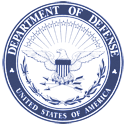Incorporated
Policy changes from this SAMM E-Change memo have been incorporated into the SAMM.
 | DEFENSE SECURITY COOPERATION AGENCY | 8/5/2014 |
MEMORANDUM FOR :
DIRECTOR, DEFENSE THREAT REDUCTION AGENCY
DIRECTOR, DEFENSE INFORMATION SYSTEMS AGENCY
DIRECTOR, DEFENSE LOGISTICS AGENCY
DIRECTOR, NATIONAL GEOSPATIAL - INTELLIGENCE AGENCY
DIRECTOR, MISSILE DEFENSE AGENCY
DIRECTOR, DEFENSE CONTRACT MANAGEMENT AGENCY
DEPUTY UNDER SECRETARY OF THE AIR FORCE FOR INTERNATIONAL AFFAIRS
DEPUTY ASSISTANT SECRETARY OF THE ARMY FOR DEFENSE EXPORTS AND COOPERATION
DEPUTY ASSISTANT SECRETARY OF THE NAVY FOR INTERNATIONAL PROGRAMS
DIRECTOR, DEFENSE LOGISTICS AGENCY LOGISTICS INFORMATION SERVICE
DIRECTOR, DEFENSE LOGISTICS AGENCY DISPOSITION SERVICES
DIRECTOR FOR SECURITY ASSISTANCE, DEFENSE FINANCE AND ACCOUNTING SERVICE - INDIANAPOLIS OPERATIONS
DEPUTY DIRECTOR FOR INFORMATION ASSURANCE, NATIONAL SECURITY AGENCY
SUBJECT :
Best Value Considerations for Transportation, Defense Security Cooperation Agency (DSCA) Policy 14-15, [SAMM E-Change 255]
REFERENCE :
DSCA policy requires Foreign Military Sales (FMS) purchasers to be responsible for transportation and delivery of its purchased materiel. Previously, our policy encouraged purchasers to hire an agent, known as a Freight Forwarder, to manage transportation and delivery. Based on its commercial and organic capabilities, the Defense Transportation System (DTS) managed by U.S. Transportation Command (USTRANSCOM) is also a viable transportation and delivery option for security cooperation materiel. Per Instruction referenced above, DoD is required to integrate military, commercial, alliance, and host-nation resources to the maximum extent possible. DSCA recognizes our global partners have a choice and encourage them to make a best value decision regarding transportation solutions for their country, whether they choose DTS or a Freight Forwarder.
Pursuant to section 1073 of the National Defense Authorization Act of 2014, P.L. 113-66, which amends 10 U.S.C. section 2642, DTS is authorized to make the DoD rate of reimbursement available to FMS customers through 2019, which may result in lower transportation costs for FMS Purchasers. The DoD rate is the amount charged to one DoD component by another DoD component. This measure is intended to assist in maintaining a robust DTS, a critical capability that benefits the United States and its global partners.
Chapter 7 of the Security Assistance Management Manual (SAMM) will be updated as reflected in the attachment, and this change will be included in the online version of the SAMM found on the DSCA Web Page, samm.dsca.mil, as SAMM E-Change 255. This change is effective immediately. For questions, please contact Mr. Todd Hughes at (703) 604-6598 or todd.hughes@dsca.mil.
J. W. Rixey
Vice Admiral, USN
Director
ATTACHMENT :
As stated
CC :
STATE/PM-RSAT
AFRICOM
CENTCOM
EUCOM
NORTHCOM
PACOM
SOCOM
SOUTHCOM
TRANSCOM
USASAC
USASAC-NC
SATFA
TRADOC
NAVSUP WSS
NAVICP
NETSAFA
AFSAC
AFSAT
DISAM
MARCOR IP
SCETC
USCG International Affairs (G-CI)
SECURITY ASSISTANCE MANAGEMENT MANUAL (SAMM), E-CHANGE 217
Best Value Considerations for Transportation
Replace Chapter 7, Section C7.1.1., with the following revised text:
C7.1.1. The United States Government and the purchaser's advanced planning for transportation of materiel is critical for case development and execution. It is Department of Defense (DoD) policy that the purchaser is responsible for transportation and delivery of its purchased materiel. DoD encourages purchasers to be self-sufficient by making informed decisions regarding transportation arrangements. Purchasers can use DoD distribution capabilities on a reimbursable basis at DoD reimbursable rates via the Defense Transportation System (DTS), or employ an agent, known as a Foreign Military Sales freight forwarder, to manage transportation and delivery from the point of origin (typically CONUS) to the purchaser's desired destination. The transportation procedures in this chapter generally apply to all Security Cooperation materiel, but any requirements specific to Building Partner Capacity programs are identified in Chapter 15.
Replace Chapter 7, Section C7.6.1., with the following revised text:
C7.6.1. Definition. DTS is the portion of the worldwide transportation infrastructure that supports Department of Defense (DoD) transportation needs in peace and war DoD Directive 4500.9E. DTS consists of two major elements: military (organic) and commercial resources. These resources include assets, services, and systems organic to, contracted for, or controlled by DoD. The DTS infrastructure, including ports, airlift, sealift, railway, highway, in-transit visibility systems, information management systems, Customs, and traffic management that DoD maintains is a vital element of DoD's capability to project power worldwide. DTS shipments must comply with the Defense Transportation Regulation (DTR) 4500.9-R. Use of the DTS may offer purchasers transportation alternatives to freight forwarders.
